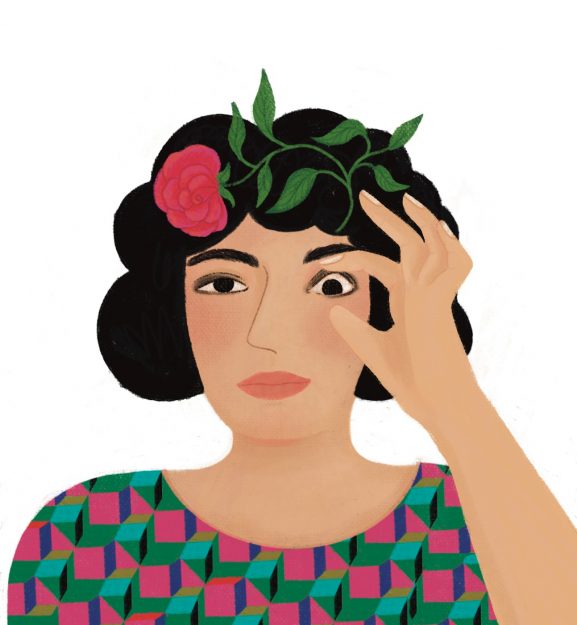The third hindrance described by the Buddha is sloth and torpor (thina-middha). During meditation, this unwholesome pair presents itself as sleepiness, disinterest, or a general feeling of malaise. It’s the “I can’t be bothered” feeling that makes caring about practice so difficult. Off the cushion, it may manifest as brain fog, overwhelm, or lethargy—all of which are rooted in our need to avoid a painful feeling or deep-seated fear.
When working with this hindrance, it’s important to first separate it from physical tiredness, a natural consequence of long meditation sessions. Thina-middha, on the other hand, has a psychological or emotional root; it arises when we become discouraged by or disinterested in our experience, resulting in an overarching lack of energy.
The antidote is to wake ourselves up by examining the cause of our lethargy and applying the appropriate remedy. If we’re feeling sleepy, we can open a window to let in cool air, change our posture, or do brisk walking meditation. If we’re feeling discouraged about our practice, we can seek the support of noble friends or cultivate sympathetic joy. And if all else fails, we can turn to the traditional antidote—the contemplation of death. After all, there’s nothing like reminding ourselves that life isn’t forever to generate a wholesome sense of urgency.
- “Each time sloth and torpor arises, which may be a state not dissimilar to how we feel at the time of our death, how are we relating to it? Do we take it as practice for dying?” –Joseph Goldstein
- Tip: In practicing with sloth and torpor, it’s helpful to remind ourselves how easily we can slip into boredom. Accustomed to high levels of stimulation, our “unoccupied” mind leaks energy, just as a cracked cup loses water. The key is to reinvigorate our awareness by turning toward the present moment. Boredom thrives on inattention, so the best thing we can do to combat sloth and torpor is to pay attention to our experience and open ourselves to wonder.
- “In a dull-minded state it is almost impossible to detect fear enmeshed with the dullness. Within the cloud of what Buddhists call sloth and torpor, there is often the fear of taking action or the fear of not succeeding if one did take action.” –Zenju Earthlyn Manuel
 “Cultivate the meditation on sympathetic joy! For by cultivating it, listlessness will disappear.” –The Buddha (Majjhima Nikaya 62)
“Cultivate the meditation on sympathetic joy! For by cultivating it, listlessness will disappear.” –The Buddha (Majjhima Nikaya 62)- Tip: We underestimate the power of a joyful mind, but sloth and torpor have no anchor in a mind suffused with joy at another’s well-being. If you’re struggling with thina-middha, bring to mind someone’s good fortune and deliberately cultivate an attitude of joy toward them. Let yourself be gladdened, and let that gladness fill you with energy.

Image(s) Credit: Illustrations by Atieh Sohrabi
♦
Editor’s note: This is the third installment of our series on the five hindrances—sensual desire, ill will, sloth/torpor, anxiousness, and doubt—and their respective antidotes. A printable version is available at tricycle.org/magazine. A printable version is available here.